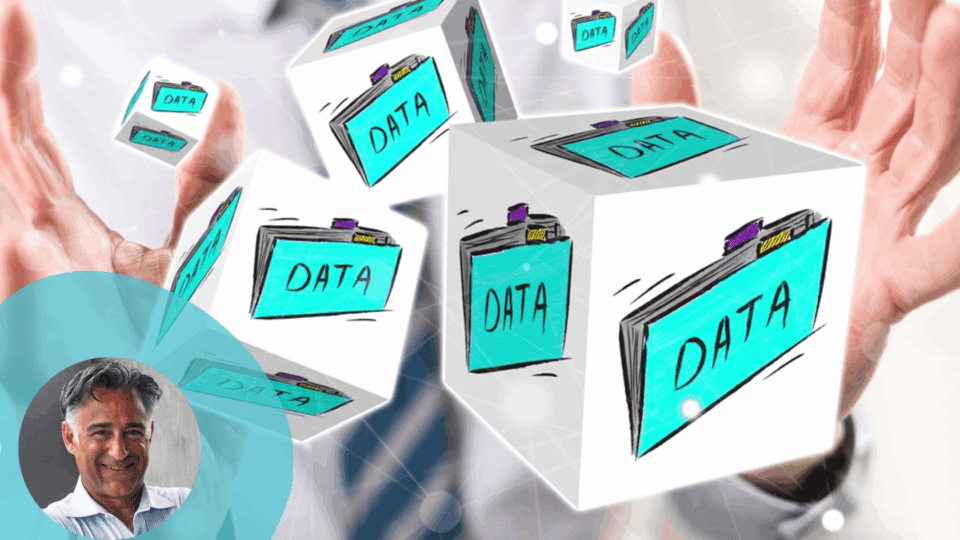In today’s fast-paced world, retailers are generating more data than ever before. From customer transactions to inventory management, retailers need to be able to manage, integrate and govern their data to make informed decisions that drive growth and profitability. Many vendors are now launching retail-specific data management solutions in response to this demand.
Global big data analytics in the retail market will grow from $6.25 billion in 2021 to $40.88 billion by 2030, yet poor data quality is one of the biggest challenges for retailers currently. Red Wing Shoe Company provides a common example. According to Jay Wardle, Director, Enterprise Data, “With our old systems, if you had a customer that bought shoes in three different stores and online, we would have four different records of you. You would look like four different $300 customers to us, instead of one $1,200 customer.”
Master Data Management (MDM) helps retailers consolidate those four different views into one, ensuring that data is accurate, consistent and complete across all systems. Of those businesses that improved their data quality in 2021, 75% exceeded their annual objectives in some way. Red Wing Shoe Company is now one of them; Wardle says, “Now our customer data contains a single golden record for everyone, making it easy for marketing, sales and customer service to see the data in real-time.”
MDM projects incorporate data governance and data integration. Data governance involves establishing policies, procedures and standards for managing data. Retailers can use data governance to ensure compliance with regulations and to minimize the risk of data breaches. Data integration enables businesses to combine data from multiple sources and transform it into useful insights. Retailers can use data integration to improve customer experiences and optimize their supply chain.
Benefits of Master Data Management, Data Governance and Data Integration in Retail
Retailers are facing growing complexities as shopping behaviors evolve. A single customer’s journey now spans multiple touch points, from browsing products on a retailer’s mobile app, engaging with AI chatbots for support, checking in-store availability and ultimately making a purchase either online or in-store. Without a unified data strategy, these interactions often remain in disconnected systems, preventing retailers from understanding the full customer journey and delivering personalized experiences.
As customer expectations for consistency across digital and physical shopping channels continue to rise, MDM is also critical for managing inventory and fulfillment. Ensuring that product availability, pricing and promotions are perfectly aligned across all channels reduces customer frustration and improves conversion rates. Target reported a 34% increase in digital sales in 2023 due to its omnichannel initiatives, and its digital sales grew by 10.8% again in Q3 2024.
Retailers that implement MDM see an average 29% increase in revenue, due to their ability to capitalize on new insights from their consolidated data. Effective data governance can reduce data-related cost by up to 20% — primarily due to eliminating redundancies — and businesses that use data integration can improve their supply chain efficiency by more than 10%. These revenue increases and cost decreases can lead to significant net revenue gains. MDM enables retailers to unify these interactions into a single golden record, ensuring a connected and personalized shopping experience across all channels.
Beyond improving operations and customer experience, the value of high-quality data also extends to new revenue streams. Retailers are increasingly monetizing their first-party data through retail media networks (RMNs), allowing brands to advertise directly to their customers on retailer-owned platforms. Companies like Walmart Connect, Amazon Ads and Target Roundel have demonstrated the profitability of this model, but success in retail media relies on high-quality data. Advertisers need assurance that they can accurately target shoppers based on recent purchase behaviors and preferences.
How to Get Started with MDM: 4 Steps
Establish goals for your MDM project. Define your initial goals and quantify them. Common examples are to improve revenue or reduce returns by a certain percent, or to consolidate customer records and eliminate duplicates.
Prioritize your goals and form a roadmap. Most retailers will start with a smaller, easier problem to solve and then build on that early success.
Audit your existing systems and processes. You’ll need to perform a data and process audit to determine where the problem areas are. Your audit should include a full map of all the data management systems, including which data is in each, and what the security needs are for each system.
Select a vendor.Now that you understand and have scoped the problems you need to address, it’s time to partner with an MDM vendor. Some things to consider during your search: relevant case studies that demonstrate goal achievement and their ability to integrate with your existing systems. Since MDM is a strategic, long-term investment, you also want to evaluate their product roadmap to make sure they can meet your needs now and in the future.
MDM projects are a big undertaking but can pack a punch in terms of customer experience, operational efficiency and revenue growth. The amount of data retailers are amassing and managing will only continue to increase, making your data processes more important and more complicated. MDM should be part of your plan for 2025.
Craig Gravina is Chief Technology Officer at Semarchy, a leader in master data management, intelligence and integrated solutions for global enterprises. With deep expertise in AI, cloud and data technologies, Gravina is recognized in the sector as a developer of disruptive market-leading solutions. In his previous role as CTO at ObvioHealth, he led digital transformation in clinical trials using AI, machine learning and cloud technologies. Specializing in distributed architectures, SaaS/PaaS business models and AI/ML innovations, Gravina is passionate about bridging business, product and technology to deliver scalable, high-impact solutions that empower organizations to unlock the full potential of their data.




